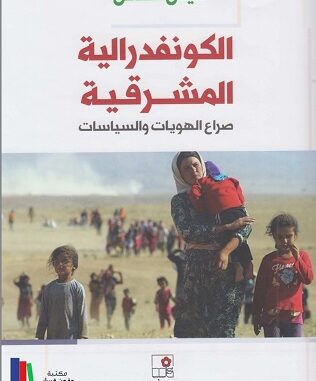
Description:
In a recent conference held on Zoom and published on YouTube, senior Middle East political analyst Anees Naqqash spoke about his 2014 book titled The Levantine Confederation: The Battle of Identities and Policies.
The book proposes that the solution to the chronic problems of the war-ravaged and tumultuous Middle East region lies in the establishment of a confederation that unites the states of the Levant, or what Naqqash often calls the ‘West Asian region’.
Middle East Observer will gradually be publishing English translations of the author’s online talk over several posts. The following is Part Three.
To read Part One see here.
To read Part Two see here.
Source: Kalam Siyasi (YouTube Channel)
Date: Aug 26, 2020
(Important Note: Please help us keep producing independent translations for you by contributing as little as $1/month here)
Transcript:
Anees Naqqash:
In view of this complex situation, I saw that it was our duty to begin the battle for the reestablishment of a new Levant via new political thought, and to determine the priorities of the (ongoing greater) regional conflict and put them in the following order:
The first struggle must be named “national liberation from Western and Zionist hegemony”. We cannot dream of an economic renaissance and intellectual and social liberation if our countries are still under direct or indirect occupation by Western and Zionist powers. Therefore, the Levantine political parties and movements have to realize that national liberation must be a collective mission to support the resistance movement in the region for the sake of liberating Palestine. During this battle, the American forces in the region must be defeated in order to clear the region of foreign forces and Zionism.
The second mission is to find new political ideas that diverge from Ibn Khaldun’s theory of domination (i.e. there can be no social order without a form of power based upon constraint and domination) because our study of previous empires (shows that) they were ruled by the dominant ethnicities, tribes, clans or families (of those times). The Umayyads were one group who dominated the entire nation just to rule it under the name of the Umayyads. The same applies to the Abbasids and the Ottomans who were the predominant group (in their nation during their respective times). Despite the advantages and the power that these empires had, they were built on domination rather than dialogue. At that time in history, it was probably difficult to have a dialogue that brings together all these ethnicities and peoples in order to build an empire based upon mutual understanding and social contracts. I am saying this to make sure our reading (of events) is realistic. Today, however, domination is no longer acceptable nor permitted, even if it offers a booming economy and heightened regional security. National, innate and religious tendencies remain an obstacle to accepting hegemony and domination of asabiyyah (defined by Ibn Khaldun as social solidarity).
Therefore, our only solution is to present a project of dialogue which we have named “The Levantine Confederation”. This project is built upon an understanding between states that have strong central security, states that are aware of the international conflict and are able to act as a lever to this project by starting a strategic dialogue between each other in order to build a Levantine system similar to the European system.
This (Levantine system) will restore to the Levant its previous empires, not by domination, but by a new socio-political contract that respects (the Levant’s) cultural and religious heritage, respects human rights, and builds a new system without changing the current maps, because changing them may lead to new clashes and instabilities. However, the borders will have minimal restrictions. (In other words,) the black borderline will be turned into a light gray line, similar to the EU borders that are almost non-existent. A person will be able to travel all over the Levant without a need for a travel visa. Goods will be transported from one country to another without paying customs except for a nominal fee. A (Levantine) investor will invest in any (Levantine) country. The economic renaissance can also be integrated with agricultural, industrial and energy – oil and gas – projects, etc.
We will build this (Levantine) system through understanding as Europe did. As a result, we will have fulfilled a big dream of the Islamic movement, i.e. uniting the Ummah (the Islamic community). (This system) would not unite a billion and a half (Muslims), but (at least) it would unite the core (of the Ummah) at the Levant. We will have also realized a huge dream of Arab nationalists who are not chauvinists nor racists. They rather adopted nationalism as an ideology to confront the West or unite Arabs against the Western and Zionist attack, but they failed (to do so).
However, this (Levantine) confederation will include many countries from inside and outside the Arab world, which will contribute towards freeing the Arab region from Zionism and Western control, and ensuring its coexistence with its natural neighbors with whom it shared a history of 1400 years under previous imperial systems.
Consequently, our (project) would have integrated with previous projects that have not succeeded, and we would find a new atmosphere for dialogue away from the atmosphere created by the mouthpiece of Western media financed by petrodollars. Unfortunately, the demonic Western media, with its intellectual toxins that fuel sectarian and ethnic conflicts in our region, no longer comes (to us) in English, nor in French. It is no longer a white man raising these issues to us. Their news rather come via Arab media funded by Arab petrodollars from Gulf countries that have put themselves at the service of the American-Zionist project, which is no longer a secret to anyone.
Continue to Part Four here
Subscribe to our mailing list!

Leave a Reply